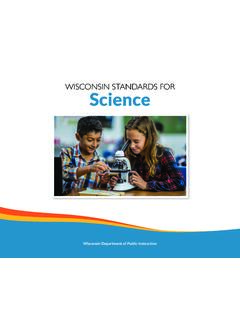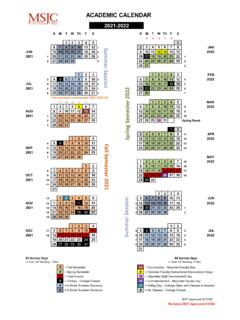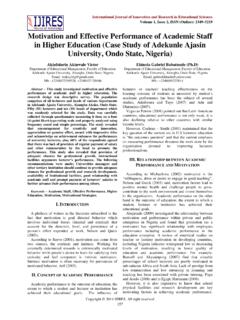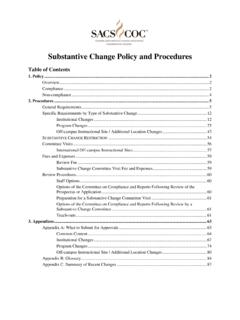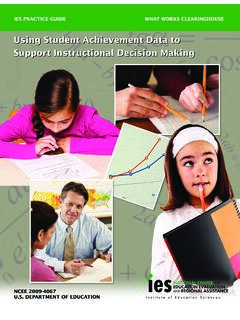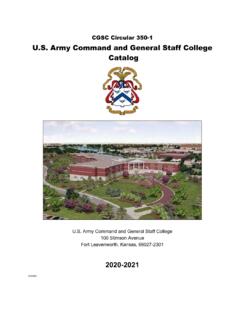Transcription of Title: Instructional Supervision and Its Relationship with ...
1 Title: Instructional Supervision and Its Relationship with Professional Development: Perception of private and government secondary school teachers in Addis Ababa Authors: Tesfaw ; Hofman Institution: Faculty of Behavioral and Social Sciences, University of Groningen Publication type: Master s thesis Date of publication: 08-08-2012 Descriptors: Instructional Supervision ; Professional development; Supervisory Approaches; Perception; Beginner; Experienced; Satisfaction; Attitude; Principals; Teachers i TABLE OF CONTENTS TABLE OF CONTENTS .. i LIST OF TABLES .. iii LIST OF FIGURES .. iv ACKNOWLEDGEMENTS .. v DEDICATION .. vi ACRONYMS AND ABREVATIONS .. vii Definition of Key Terms .. viii Abstract .. x CHAPTER ONE .. 1 INTRODUCTION .. 1 Background of the Study .. 1 Problem Statement .. 3 Aim and Significance of the Study .. 4 Organization of the Study .. 5 CHAPTER TWO .. 6 THEORETICAL FRAMEWORK .. 6 History of School Supervision .
2 6 Overview of Instructional Supervisory Approaches (Formative Evaluation) .. 8 Teachers Perception of Supervisory Processes .. 13 Teachers Satisfaction and Attitude toward Instructional Supervision .. 14 Relationship between Instructional Supervision and Professional Development .. 15 CHAPTER THREE .. 18 RESEARCH DESIGN AND METHODOLOGY .. 18 Description of the Study Area .. 18 Sources of Data .. 19 Samples and Sampling 19 Instrument .. 19 ii Procedure of Data Collection .. 21 Data Analysis .. 22 CHAPTER FOUR .. 23 RESULTS .. 23 Experiences with Supervision and evaluation .. 23 Importance and Adequacy of Supervision .. 25 Construction of scales regarding Supervision .. 26 Actual and Ideal Supervisory Practices .. 28 Attitudes toward Supervisory Processes .. 31 Satisfaction with the Process of Supervision .. 32 Supervision and Professional Development .. 33 Suggestions for improvement .. 36 CHAPTER FIVE .. 38 CONCLUSIONS AND DISCUSSION.
3 38 Conclusions .. 38 Discussion .. 40 Teachers perception of the Supervision process .. 40 Teachers attitude and satisfaction toward supervisory practices .. 41 Connection between Instructional Supervision and professional development .. 41 Suggestions for improvement .. 42 Limitations .. 43 Recommendations .. 43 REFERENCES .. 44 APPENDICES .. 49 iii LIST OF TABLES Table 1 Scales regarding Table 2 Beginner and experienced teachers perception on the actual use of selected supervisory Table 3 Male and female teachers perception on the actual use of selected supervisory Table 4 Government and private school respondents perception on the actual use of selected supervisory Table 5 Respondents attitudes toward the supervisory Table 6 Respondents perception of their satisfaction with Table 7 Correlations of Perception, Attitude and Satisfaction Scales with Professional Table 8 The Regression Model of Predicting Professional Development using Actual and Ideal Supervisory Approaches, Attitude and Satisfaction while controlling for teacher and school iv LIST OF FIGURES Figure 1.
4 Model of Instructional 21 v ACKNOWLEDGEMENTS Firstly, thanks to God, for His love, His grace, and His countless blessings. Next, my acknowledgment goes to all of my instructors in the Faculty of Behavioral and Social Sciences, University of Groningen (RUG), who have shaped me to stand as competent for the International Master of Science in Education. I am very much grateful to my thesis supervisors, Dr. Roelande H. Hofman and Dr. Rink Hoekstra for their continuous follow up, encouragement, and guidance from the beginning to the end of this work. I have also to use this opportunity to forward my special thanks to Drs. (Coby) Evers (Academic Advisor and International Coordinator at the Faculty of Behavioral and Social Sciences), staff members of international service desk at RUG, and Nuffic representatives for their remarkable commitment for the wellbeing of my stay and study at the RUG.
5 I would like to thank Dr. Wondimu Ahmed (lecturer at the Faculty of Behavioral and Social Sciences, RUG) for his endeavor to provide me valuable comments. I am very much grateful to Addis Ababa City Administration Education Bureau, Arada, Gullele, Yeka, Kirkos and Kolfe Keranio Sub-city Education Offices, private and government secondary school principals and teachers in these sub-cities for the permission, provision of general information about schools, and filling in my questionnaire, respectively. I would like to express my deepest appreciation to Mr. Tadele Derseh (Executive Director and Ambassador for Peace at VECOD, Ethiopia) and Mr. Yonas Mitiku (Project Officer at VECOD), for their unreserved support and encouragement. I am forever grateful and I thank you sincerely. My greatest gratitude goes to my sincere wife Azagne Shitu, whose love, understanding, encouragement, and unselfish sacrifices have allowed me to achieve my goals.
6 I would like to thank Mr. Fitsum G/Michael, Michael Fiquremariam and Wondwossen Melaku for their prayers, encouragement and support. My last but not the least, appreciation also goes to all my international master student class mates for their participation in the pilot study and provision of valuable comments during the construction of my instrument. vi DEDICATION I dedicate this thesis to my wife, W/ro Azagne Shitu The love of my life. vii ACRONYMS AND ABREVATIONS AACAEB- Addis Ababa City Administration Education Bureau AACA- Addis Ababa City Administration ANOVA- Analysis of Variance MOE- Ministry of Education SCEO- Sub-city Education Office SPSS- Statistical Package for the Social Sciences viii Definition of Key Terms For the purpose of this study, the following terms were defined: Instructional Supervision .
7 It is a type of school-based (in-school) Supervision carried out by the school staff (principals, department heads, senior teachers, and assigned supervisors) aimed at providing guidance, support, and continuous assessment to teachers for their professional development and improvement in the teaching-learning process, which relay on the system that is built on trust and collegial culture (Beach & Reinhartz, 2000; Tyagi, 2010). Supervisors: in this study refer to school personnel involved in conducting Instructional Supervision (principals, department heads, senior teachers, and appointed supervisors). Beginning teacher: in Ethiopia refers to a teacher currently in the first or second year of teaching. Experienced teacher: in Ethiopia refers to a teacher who has three or more years of teaching experience. Secondary school: is a school usually includes grades 9 through 12. Ideal supervisory approaches: in this study refer to the frequency with which selected supervisory approaches (clinical Supervision , peer coaching, cognitive coaching, mentoring, self-directed development or reflective coaching, portfolios, and professional growth plans) that teachers prefer to be applied in their schools.
8 Real supervisory approaches: refer to the frequency with which teachers perceive these selected supervisory approaches are actually occurred in their schools. Clinical Supervision : is a process for the improvement of professional growth, which usually consists of several phases, such as conference, observation by a supervisor, and post-conference (Glatthorn, 1990). Peer coaching: is a process of Supervision in which teachers work collaboratively in pairs and small teams to observe each others teaching and to improve instruction (Beach & Reinhartz, 2000). Cognitive coaching: is a nonjudgmental process in which supervisor attempts to facilitate teacher learning through a problem solving approach by using questions to stimulate the teacher s thinking (Costa & Garmston, 1994). ix Mentoring: is a process that facilitates Instructional improvement wherein an experienced educator (mentor) works with a novice or less experienced teacher collaboratively and nonjudgmental to study and deliberate on ways instruction in the classroom may be improved (Sullivan & Glanz, 2000).
9 Self-directed development (Reflective coaching): is a process by which a teacher systematically plans for his or her own professional growth in teaching (Glatthorn, 1990). Teaching portfolio: is a process of Supervision with teacher-compiled collection of artifacts, reproductions, testimonials, and student work that represents the teacher s professional growth and abilities used to support and enrich mentoring and coaching relationships (Riggs & Sandlin, 2000, Sergiovanni & Starratt, 2007). Professional growth plan: refers to individual goal-setting activities, long-term projects teachers develop and carry out relating to the teaching. Professional development: is a major component of ongoing teacher education concerned with improving teachers Instructional methods, their ability to adapt instruction to meet students needs, and their classroom management skills, leading to the professional growth of the teacher (Wanzare & Da Costa, 2000).
10 Sub-city: in Ethiopian case, refers to the government administrative hierarchy next to city administration. It is locally called Kifle Ketema . x Abstract (Purpose) The purpose of this study is to examine the existing perceptions and preferences of teachers toward Instructional Supervision , more specifically on the actual and ideal use of selected Instructional supervisory approaches (such as clinical Supervision , peer coaching, cognitive coaching, mentoring, reflective coaching, teaching portfolios, and professional growth plans) in secondary schools of Addis Ababa, Ethiopia. It also seeks to explore if there are differences between beginning and experienced teachers in their attitudes toward and satisfaction with supervisory practices and (possible) relationships with perceived professional development. (Methodology) The study employed a descriptive survey method. The study was carried out in randomly selected 20 (government and private) secondary schools of Addis Ababa, Ethiopia.










